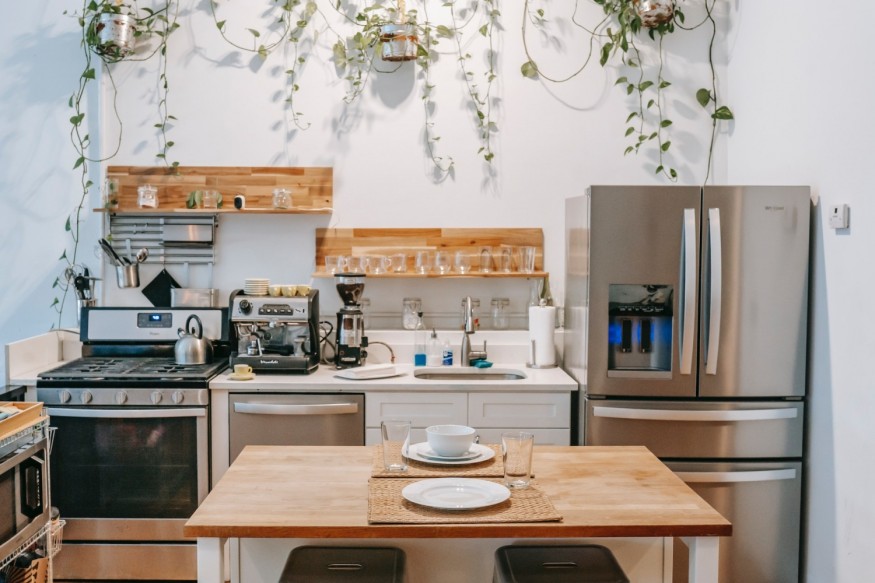
Improving the energy efficiency of your household appliances significantly reduces your monthly utility bill and increases your comfort level indoors. It also reduces pollution and lessens your impact on climate change. However, many homeowners find themselves spending thousands of dollars on energy bills without knowing how to cut them down. This article will show you practical steps for boosting the energy savings of your appliances.
1. Insulate Your Home
Insulation helps build thermal resistance in homes and prevents unwanted movement of air.
So many homes today are not properly insulated as they have small cracks or holes which release air. Such gaps increase energy bills and cost homeowners extra money since cooling and heating are major contributors to home energy consumption. If your home is not properly insulated, consider installing insulation and sealing any air leaks.
One of the most crucial places for insulation in your home is your attic because your roof helps maintain the temperature of the space it covers. For optimal energy efficiency and climate control, insulate the ceilings, walls, rafters, and other finished and unfinished attic spaces. Usually, attic insulation is done using loose-fill insulation, fiberglass blankets, or both. One way to determine whether or not your attic needs insulation is by observing your floor joists. If you can see the structural support pieces running horizontally across your attic floor between beams, it's an indication that you likely need more insulation. Your insulation should also be even across your attic and high enough to cover your beams. Other places prone to leakage in the home are mail slots, electrical receptacles, fireplace dampers, attic hatches, window frames, switch plates, and areas around wires and pipes.
2. Regular Maintenance
You shouldn't wait for your appliances to develop faults before carrying out maintenance on them. Household appliances usually use up more energy when they have to work harder than they should. If your energy expenses are high, it could be a sign that your home's appliances require repair or maintenance.
Fixd home appliance and HVAC repair in Carrollton, Texas, emphasizes that ''routine maintenance is a necessity that helps avoid breakdowns and issues that lead to big problems and higher costs.'' So, it is crucial to follow the maintenance instructions provided in the owner's manual of your appliances.
3. Adjust the Temperature When Necessary
Adjusting the temperature of your household appliances can boost their energy efficiency because even the smallest temperature changes can impact your energy consumption. Water heaters are usually set to 140 degrees during installation. This is unnecessarily high and can result in higher energy bills. Consider lowering the temperature to 120 degrees, as this could lead to a 10 percent reduction in the water heater's energy usage. You need not worry about this adjustment, as the temperature will still leave you with sufficient heat.
You can also adjust your thermostat to different temperatures during the summer and winter to help you use less energy. On sunny winter days, open your drapes and blinds to allow the sunlight to warm your home. You can close the curtains on hot summer days to block out intense sun rays. When you control the amount of sunlight coming into your home, your furnace or air conditioner will not need to work so much in order to make your house conducive.
4. Unplug Your Gadgets That Aren't in Use
What many people don't realize is that electronic devices consume energy even when they are not turned on. Pulling the plug on your electronics will help you conserve energy and save money. It will also help extend the lifespan of your appliances.
Large appliances such as your dishwasher, refrigerator, and range may be difficult to unplug and plug again when you need them. This is especially the case when they have clocks that need to be reset after plugging in. But you can unplug small kitchen appliances such as your blender, coffee maker, and electric can opener until they're ready for use. You can also unplug your game console, TV, stereo, cable box, and chargers.
5. Lifestyle Changes
Some simple lifestyle changes can help you improve the efficiency of your appliances. For example, when cooking with your oven, do not open the oven door unnecessarily. Also, keep the doors of your refrigerator closed unless you need something from it, and avoid using your washing machine or dishwasher if you don't have a full load to clean. Remember to clean the lint filter of your tumble dryer after each load.
© 2025 NatureWorldNews.com All rights reserved. Do not reproduce without permission.





